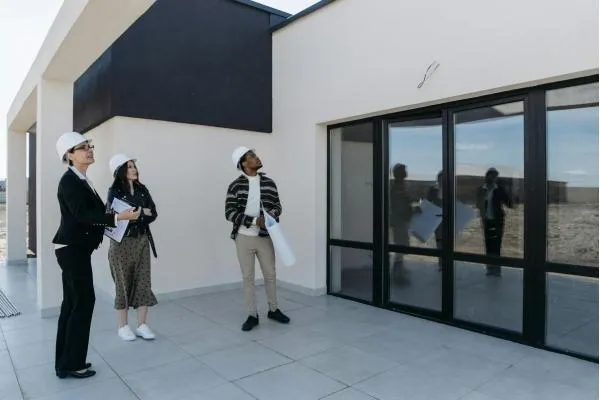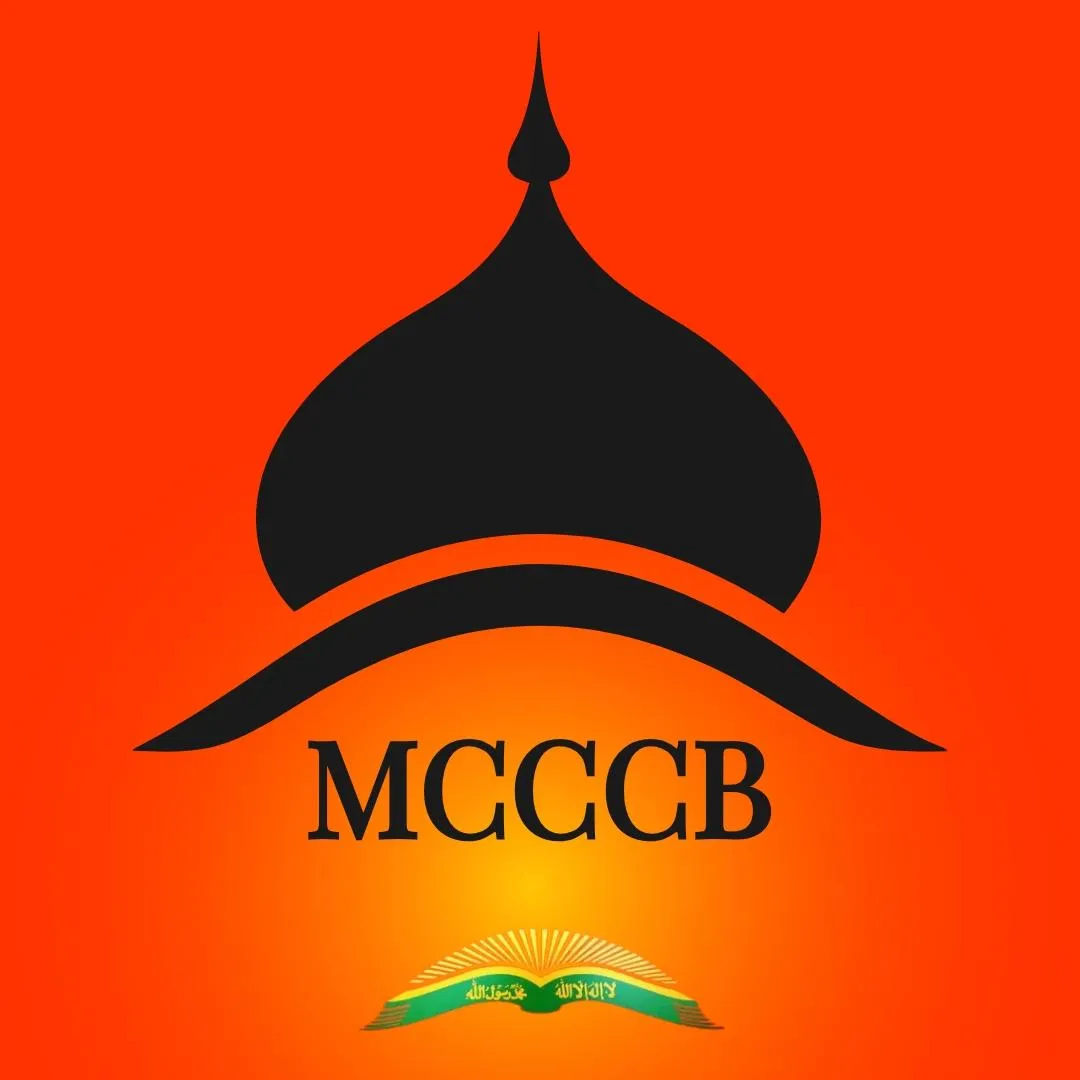Al-Islam's Universal Beliefs
Allah is The Creator with no partners. Muslims have 99 Popular Attributes for Allah.
What is Al-Islam?
Al-Islam is the complete way of life that reflects Submission to the Will of G-d. Islam means "submission," derived from the Arabic word "Salaam," meaning "peace."
What is Al-Islam?
Al-Islam is the complete way of life that reflects Submission to the Will of G-d. Islam means "submission," derived from the Arabic word "Salaam," meaning "peace."
Who is a Muslim?
A Muslim is anyone who submits to the Will of G-d. Everyone is born "Muslim, and their environment makes them otherwise."
Who is a Muslim?
A Muslim is anyone who submits to the Will of G-d. Everyone is born "Muslim, and their environment makes them otherwise."
How does one become a conscious Muslim?
To become Muslim is to make a public declaration that "there is no god but Allah (One G-d), and that Muhammad is the Messenger of G-d." This is called the Shahadatain.
How does one become a conscious Muslim?
To become Muslim is to make a public declaration that "there is no god but Allah (One G-d), and that Muhammad is the Messenger of G-d." This is called the Shahadatain.
Who is Muhammad?
Muhammad the Prophet was born in Mecca, the holiest city to Islam in Arabia in the year 570 or in the 6th Century.
Who is Muhammad?
Muhammad the Prophet was born in Mecca, the holiest city to Islam in Arabia in the year 570 or in the 6th Century.
How many Muslims are there?
Worldwide there are just over 1 billion Muslims, or one out of every five people on earth is a Muslim. In the United States, there are approximately 8 million Muslims; 2.5 million are recognized as indigenous, with the remainder by way of immigration.
How many Muslims are there?
Worldwide there are just over 1 billion Muslims, or one out of every five people on earth is a Muslim. In the United States, there are approximately 8 million Muslims; 2.5 million are recognized as indigenous, with the remainder by way of immigration.
Aren't all Muslims Arabs?
No. Most Muslims live east of Karachi; 30% of Muslims live in the Indian subcontinent; 20% in Sub-Saharan Africa, 17% in Southeast Asia, 18% in the Arab world; 10% in the states of the former Soviet Union/Russia. There is a significant Muslim population in China, Latin America and Australia. Aren't all Arabs "Muslims"? No.
Aren't all Muslims Arabs?
No. Most Muslims live east of Karachi; 30% of Muslims live in the Indian subcontinent; 20% in Sub-Saharan Africa, 17% in Southeast Asia, 18% in the Arab world; 10% in the states of the former Soviet Union/Russia. There is a significant Muslim population in China, Latin America and Australia. Aren't all Arabs "Muslims"? No.
What is the Ka'bah?
The Ka'bah is the Ancient House in Mecca, Saudi Arabia, toward which all Muslims all over the world turn as their direction for making prayer. It is the House built by Prophet Ibrahim (Abraham) and his son and Prophet, Isma'il (Ishmael). It is built on the location where G-d told Ibrahim to summon all mankind to visit this place; it is believed to be the original site of a sanctuary established by Adam.
What is the Ka'bah?
The Ka'bah is the Ancient House in Mecca, Saudi Arabia, toward which all Muslims all over the world turn as their direction for making prayer. It is the House built by Prophet Ibrahim (Abraham) and his son and Prophet, Isma'il (Ishmael). It is built on the location where G-d told Ibrahim to summon all mankind to visit this place; it is believed to be the original site of a sanctuary established by Adam.
What are the Sunnah & Hadith?
Prophet Muhammad was described by his wife, Aishah, as the Qur'an walking and his life examples and practices constitute the second most important source for Muslims. These life examples are called Sunnah and are compiled in Hadith.
What are the Sunnah & Hadith?
Prophet Muhammad was described by his wife, Aishah, as the Qur'an walking and his life examples and practices constitute the second most important source for Muslims. These life examples are called Sunnah and are compiled in Hadith.
What are the Five Pillars of
Al-Islam?
The Ka'bah is the Ancient House in Mecca, Saudi Arabia, toward which all Muslims all over the world turn as their direction for making prayer. It is the House built by Prophet Ibrahim (Abraham) and his son and Prophet, Isma'il (Ishmael). It is built on the location where G-d told Ibrahim to summon all mankind to visit this place; it is believed to be the original site of a sanctuary established by Adam.
What are the Five Pillars of Al-Islam?
The Ka'bah is the Ancient House in Mecca, Saudi Arabia, toward which all Muslims all over the world turn as their direction for making prayer. It is the House built by Prophet Ibrahim (Abraham) and his son and Prophet, Isma'il (Ishmael). It is built on the location where G-d told Ibrahim to summon all mankind to visit this place; it is believed to be the original site of a sanctuary established by Adam.
What else do Muslims believe?
Muslims believe in all of G-d's prophets from Adam down through the chain of prophets to Muhammad, the last. Muslims believe in all the Scriptures that the Prophets came with from G-d including the Torah (of Moses) and the Gospel (of Jesus). Muslims believe in the Angels, the most notable in the Qur'an being Jibril (Gabriel). Muslims believe in Life after Death or the Resurrection. Muslims believe in the Day of Judgement, when everyone will be called to recon for their deeds before G-d.
What else do Muslims believe?
Muslims believe in all of G-d's prophets from Adam down through the chain of prophets to Muhammad, the last. Muslims believe in all the Scriptures that the Prophets came with from G-d including the Torah (of Moses) and the Gospel (of Jesus). Muslims believe in the Angels, the most notable in the Qur'an being Jibril (Gabriel). Muslims believe in Life after Death or the Resurrection. Muslims believe in the Day of Judgement, when everyone will be called to recon for their deeds before G-d.
What is Jumuah?
Jumuah litterally means in Arabic "congregation" and it is the most important day of all days to Muslims. Jumuah Prayer is on every Friday, just past midday.
What is Jumuah?
Jumuah litterally means in Arabic "congregation" and it is the most important day of all days to Muslims. Jumuah Prayer is on every Friday, just past midday.
What is Eid?
Eid in Arabic literally means "recurring happiness." There are two celebrations every year observed by all Muslims. Eidul Fitr celebrating the completion of Ramadan and Eidul Adha celebrating the completion of Hajj (pilgrimage). Eidul Adha the "Celebration of Sacrifice" is the greater Eid and it also commemorates Prophet Ibrahim's devotion to G-d and willingness to sacrifice his son Is'mail (Ishmael).
What is Eid?
Eid in Arabic literally means "recurring happiness." There are two celebrations every year observed by all Muslims. Eidul Fitr celebrating the completion of Ramadan and Eidul Adha celebrating the completion of Hajj (pilgrimage). Eidul Adha the "Celebration of Sacrifice" is the greater Eid and it also commemorates Prophet Ibrahim's devotion to G-d and willingness to sacrifice his son Is'mail (Ishmael).
What is G-d?
Imam W. Deen Mohammed, leader of the largest indigenous group of Muslims, explained that in order to show our reverence to the Name of G-d Almighty, that we not use any spelling that could in the reverse mean "dog."
What is G-d?
Imam W. Deen Mohammed, leader of the largest indigenous group of Muslims, explained that in order to show our reverence to the Name of G-d Almighty, that we not use any spelling that could in the reverse mean "dog."
Subscribe to our newsletter
Get notified of new products, services, educational information, and promotions directly to your inbox.
Latest News
Stay Informed. Stay Connected.
Catch up on the latest updates from MCCCB, including upcoming events, community initiatives, and restoration progress.

Why Is a Different Company Sending an Inspector to My House
Why Is a Different Company Sending an Inspector to My House?
Many homeowners are surprised and even frustrated when someone arrives to take photos of their property, claiming to be there on behalf of a company they’ve never heard of. It’s a common question:
"I send my payments to Company X. Why is Company Y sending someone to inspect my home?"
The confusion is understandable. After all, a homeowner may have been making payments for years to a familiar lender or loan servicer—only to see a completely different company name appear in communications or on the inspector’s badge.
This happens frequently, and here’s why.
The Layers in Mortgage Servicing
When a homeowner obtains a mortgage, they usually start with an originating lender—let’s call them Company X. Over time, the servicing rights to that loan may be transferred or sold. This means the company managing the loan day-to-day (the servicer) may change, even though the original lender remains the same or may have sold the loan entirely.
In many cases, the servicer then contracts with an asset management company or field services company—let’s call them Company Y—to perform specific tasks, such as verifying property condition or occupancy status.
When a field inspector arrives, they are often working on behalf of this contracted company, not directly for the lender or servicer the homeowner is familiar with.
Here’s a simplified chain of command:
Homeowner
Lender or Mortgage Investor (e.g., Fannie Mae, Freddie Mac, private investor)
Loan Servicer (the company handling payments, statements, and account management)
Asset Management Company (oversees inspections, default processes, etc.)
Field Services Company (coordinates and dispatches inspectors)
Independent Inspector (the person taking photos and verifying occupancy)
By the time an inspector arrives at the property, several layers may exist between them and the homeowner. The inspector is simply fulfilling a task requested by the parties above them—often with limited information about the specific reason for the inspection.
The Role of the Inspector
It’s important to understand that inspectors are not there to be intrusive or make homeowners feel uncomfortable. They are not given personal details such as loan status, payment history, or specific reasons for the inspection. In fact, sharing such information would often violate privacy laws.
Inspectors are hired to verify exterior property condition or occupancy status—nothing more. They typically have no knowledge of the underlying loan terms or the homeowner’s personal circumstances.
What Homeowners Can Do
When faced with an unexpected inspection, homeowners should:
Contact their last known lender or loan servicer for clarification.
Ask if the loan has been transferred or sold to a different entity.
Review the Deed of Trust or Mortgage for terms that may allow inspections.
Stay informed—knowledge is the best tool for protecting homeowner rights.
Final Note
While it may feel frustrating to see a new company name involved in the process, this is a standard part of the mortgage servicing industry. Inspections are a routine task assigned by servicers and investors to ensure the property remains in good condition and to protect the value of the asset.
For homeowners seeking guidance on navigating mortgage-related questions, affordable legal support plans are available. These services can connect homeowners with attorneys who can review loan documents, explain legal rights, and provide clarity when questions arise.

